#ian iqbal rashid
Explore tagged Tumblr posts
Photo
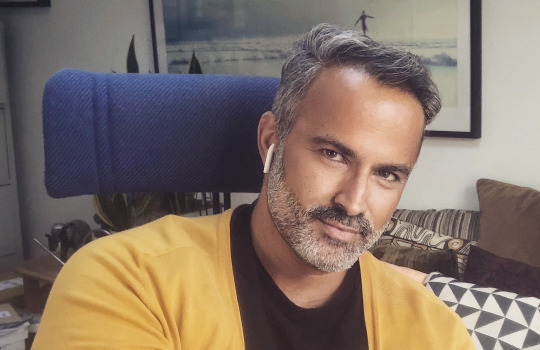
Ian Iqbal Rashid
Gender: Male
Sexuality: Gay
DOB: Born 1968
Ethnicity: Indian
Nationality: Tanzanian / Canadian
Occupation: Poet, writer, screenwriter, journalist, producer, director
#Ian Iqbal Rashid#qpoc#lgbt#lgbtq#mlm#male#gay#1968#indian#asian#poc#Tanzanian#Canadian#poet#writer#screenwriter#journalist#producer#director#muslim
69 notes
·
View notes
Text

5 notes
·
View notes
Text
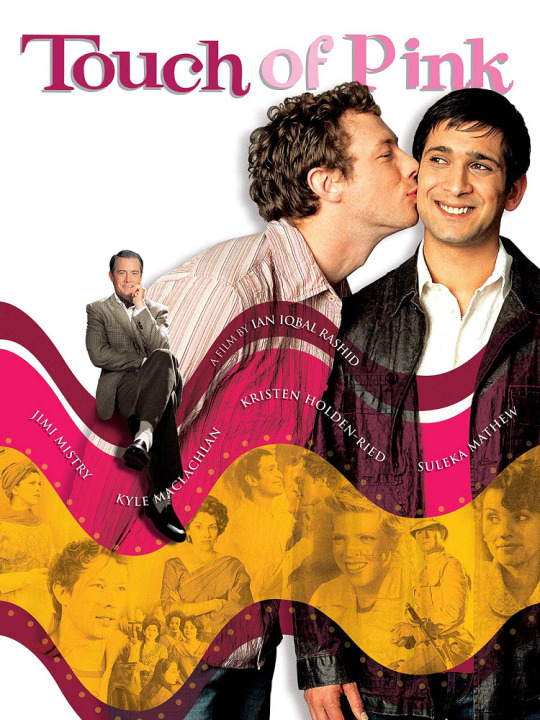
#movies#polls#touch of pink#jimi mistry#kris holden ried#ian iqbal rashid#lgbtq+#ended#result: unheard of
3 notes
·
View notes
Text
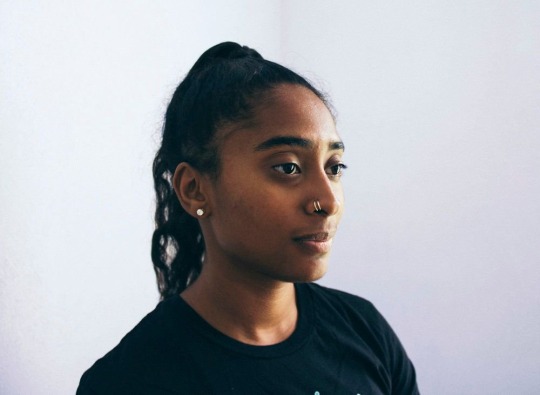

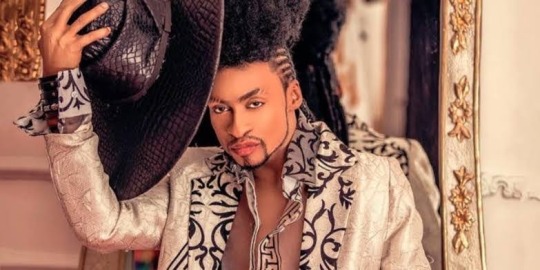

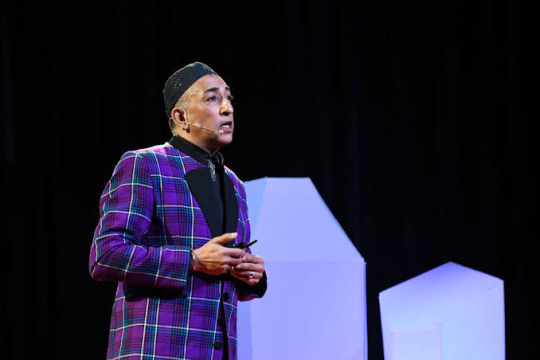
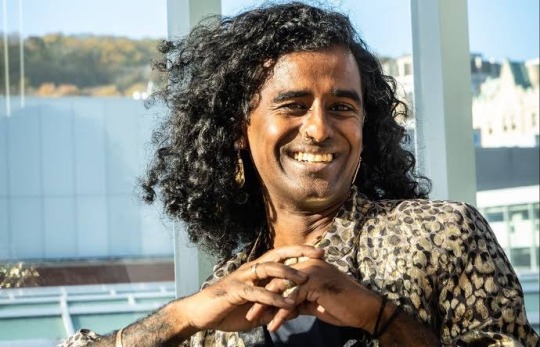
Queer Africans of South Asian Descent
Jessica Clark (Nigeria)
Anita Obasi (Nigeria)
Denrele (Nigeria, Mauritius)
Ian Iqbal Rashid (Tanzania)
El-Farouk Khaki (Tanzania)
Kama La Mackerel (Mauritius)
#jessica clark#anita obasi#denrele#denrele edun#ian iqbal rashid#el-farouk khaki#el farouk khaki#kama la mackerel#nigeria#tanzania#mauritius
12 notes
·
View notes
Photo
TOQUE DE ROSA (2004)
dir. Ian Iqbal Rashid
Alim é um homem indo-canadense que atualmente vive em Londres para fugir do olhar crítico de sua mãe viúva muçulmana, Nuru. Em sua nova casa, Alim é livre para viver abertamente como homossexual, do qual sua mãe não tem conhecimento, e mantém um relacionamento amoroso com seu namorado britânico, Giles. Para navegar pela sua vida complicada, Alim usa o “espírito de Cary Grant” como seu confidente e conselheiro. Sentindo que falta uma nora em sua vida enquanto sua irmã se prepara para o casamento “perfeito” de seu filho, Nuru decide se reconectar com Alim em Londres. Ainda não pronto para contar à mãe sobre seu namorado ou sua homossexualidade, Alim, com o apoio de Giles, esconde qualquer aspecto desse fato para a visita de Nuru, mas enquanto Giles é testado um dia após o outro durante a visita de Nuru, tanto Alim quanto Nuru começam para entender o que é realmente importante em suas vidas.
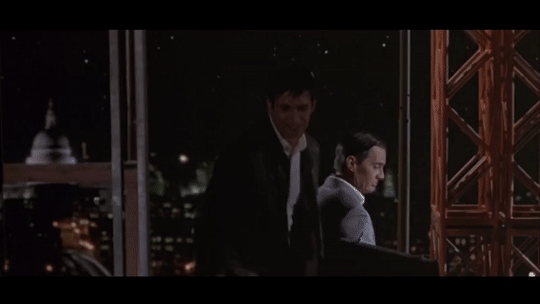
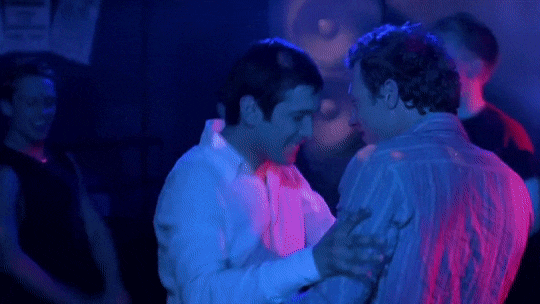
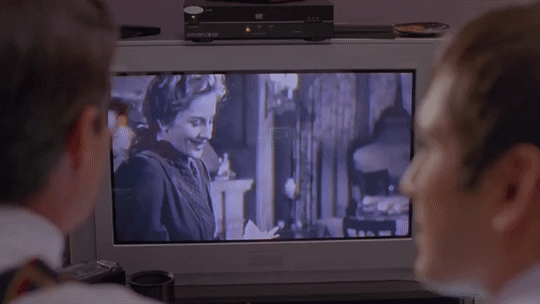

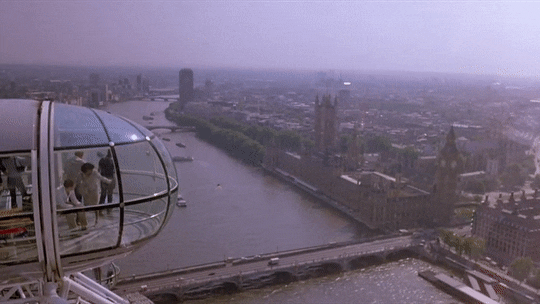



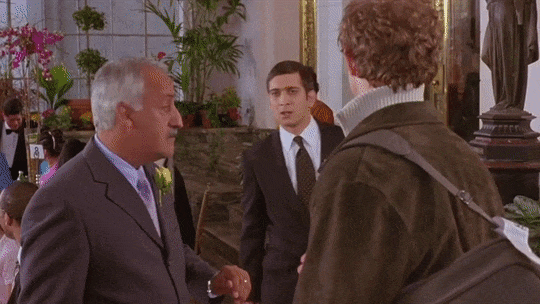
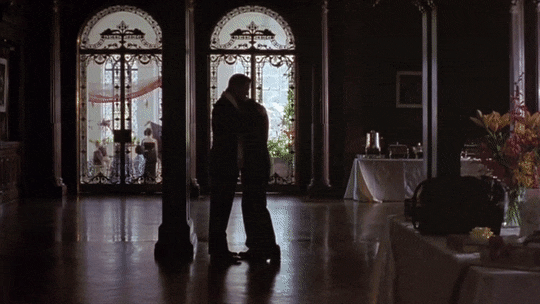
TOUCH OF PINK (2004) dir. Ian Iqbal Rashid Alim is an Indo-Canadian man currently living in London in order to get away from his muslim widowed mother Nuru’s critical eye. In his new home, Alim is free to live openly as a homosexual, of which his mother is not aware, and is in a loving relationship with his live-in British boyfriend, Giles. To navigate through his complicated life, Alim uses the ‘spirit of Cary Grant’ as his confidante and advisor. Feeling like her life is missing a daughter-in-law as her sister prepares for her son’s “perfect” wedding, Nuru decides to reconnect with Alim in London. Not yet ready to tell his mother of either his boyfriend or his gayness, Alim, with Giles’ support, hides any aspect of this fact for Nuru’s visit, but as Giles is tested one turn after another during Nuru’s visit, both Alim and Nuru begin to understand what is truly important in their lives. (link in title)
273 notes
·
View notes
Text
anyway everyone should go watch underrated masterpiece Touch of Pink (2004, dir. Ian Iqbal Rashid)
#touch of pink#touch of pink 2004#lgbt cinema#gay cinema#queer cinema#Kyle MacLachlan#my posts#genuinely not kidding in the slightest this movie is so good.
70 notes
·
View notes
Text
I hope Ian iqbal rashid checks the letterboxd page for touch of pink and sees the top 3 reviews are myself and 2 people who I got to watch the movie
6 notes
·
View notes
Text
Characters: TV Shows
Ackley Bridge
A:Razia, Nasreen, Kaneez, Missy, Hayley, Grandmother Paracha, Rashid, Saleem, Tahira, Amina, B: Alya, Zain, Mo, Waqar, Clint,Amin, Jake, Shannon, Candice, Mandy, Kacey/Spud, Rukhsana, Chloe,Freya,Marianna, Mandy, Samir,
C:Jordon, Riz, Nell, Naveed, Kayla, Samantha, Martin, Emma, D: Dan, E: Nadine, Ken,
F: Iqball,Kyan, Adam, Sian,
Almost Never
A:Nate
B: Harry, Elenour, Chloe, Sasha, Lola,Tara, Fabio, Jordon,
C:Oakley, AJ,
D: E: F:
Chiefs
A:
B: Nigella Lawson,Gordon Ramsey, Mary Berry, Paul Hollywood,
C:
D: Ina Garton, Ree Drummond,
E:Jamie Oliver
Cobra Kai, The Karate Kid
A:Miyagi, Bobby, Miguel, Carmen, Rosa, Aisha, Moon, Kimiko, Jimmy, Alison, Amanda, , Lucile,Bert
B: Samantha, Tory, Eli, Chris, Mitch, Robbie, Chozen,Lucille, Daniel, Tommy, Dirk, Frank, Abe, Doug, Mikey, Nate, Edwin, Little Red, Big Red, Stiven, Piper, Dieter, Paul, Anosh, Betsy, Sato, Laura,Johnny,
C:Demetri,Yasmine, Louis, Lynn, Nester, Anthony, Kenny, Séan, Dutch,
D: Kyler, Brucks, Raymond/Stingray, Armand, John Kresse, Terry Sliver,
E:Mike Barnes, Sid,
F: Kreese's and Sliver's Captain,
How to train your dragon
A: Astrid, Snotlout, Heather, Stoick, Gobber, Gothi,the dragons
B:Hiccup, Ruffnut, Tuffnut, Fishlegs, Alvin, Atali, Minden,
C:Dagar, Mala,Thorik,
D:Valka, Spitelout, Viggo, Ryker, Johan,
E:Krogan,
F:Drago
Holly Hobbie
A: Piper, Amy, Holly, Grand mother Helen,
B: Heather,
C: Savannah, Levi, Robbie, Leia, Tyler, Oscar,
D:
E: F: Jason Ryan Reeves
Fireman Sam
A: Sam, Penny, Helen, Hannah, Sarah, Mandy, James, Lion,Radar,
B:Norris Steal,Ellie, Arnold, Malcolm, Tom, Moose, Charlie,Dills, Trevor, Derek, Chief Boise,
C: Elvis,
D: Mike, Joe,
E:Norman,
F:
Jamie Johnson
A: Molly, Zoé, Alba, Ruby, Dylan, Karen, Nancy, Harry,
B: Dawn, Becky, Joanne, Boggy,Jess, Jamie, Mike, Hansard, Aisha, Freddie, Eric, Katya, Tayo, Jake, Michel, C: Jackie, Bex, Liam,
D:
E:
F: Ian
Masha and the bear
A: Bear, Rosie, Penguin, Panda, B: Female Bear, Rabbit/Hare, Wolves, Goat, Dog, Dasha, Squirrels,
C:
D: Masha, Other Male Bear,
E: F: Masha's Parents
Mustangs FC/Mightey Mustangs
A: Danny, Ruby, Marnie, Liv, Bella, Anusha, Laura, Hanifer, Freya,Hamit, TJ
B: Jenifer,Cindy, Jas, Zee, Summer, Georgie, Jasper,
C:Mikayla, Terri, Gabe,
D:
E:Tom,
F:
Legacies: A: Hope
Secret life of Boys
A: Roberta, Robbie, Ginger, Corey, Matt, Ethan, Heba,
B: Daisy,Penny
C: Chris, Bob, Tabitha,
D:Jimothey,
E:
F:
Tracy Beaker Series:
My mother Tracy Beaker/Beaker Girls
A: Tracy, Justine, Jess, Flo,
B: Camilla, Mary, Tyrone, Jordon
C:Peter,
D:
E: Carly Beaker
F:Séan
The Dumping Ground
A: Chloe, Kazima, Charlie, Carmen, Tee Sasha,Gina, May Li, Mo, Lily, Noah, Billie, Toni, Faith, Ryan, Jody, Tracy, Alice Wang, George, Sapphire, Henry Morris, Jack O Donovan, Dave O Donovan,
Alice Peters,Finn,
B: Gus, Jacob, Johnny, Bailey, Taz, Joseph, Viv, Sid, Floss, Bec, Ruby, Katy, Max, Nazzer, Elektra, Liam, Frank, Alex, Courtney, Lauren, Ivy, Shona, Fred/Dudley, Harry, Archie, Jake, Iona,
C: Mike, Tyler, Piper, Rick, Peader, Melissa, Ross, Aileen Peters, Grandmother Wang, Luke Jackson, Janice Umbellbey, Luke, Freya,
D: Murphy, Dexter, Scott,
E: Sarah Reeves,Blake, Melanie Morris, Lucy Taylor, Sally Lewis, Kelly Bellman, Helen Howle, Carly Beaker, Denise Jackson, Kingsley Jackson, Peter Umbellbey,
F: Reggie Wallis, Keith Taylor,
Tracy Beaker returns
A: Carmen, Tee, Gina,Lily, Sapphire, Tracy, Jody, Justine,
B: Camilla, Johnny, Harry, Liam O' D, Frank, Mandy/Elektra, Kitty,
C: Mike, Tyler, Rick, Melissa, Luke Jackson,
D: Poppy, Rosie,
E: Helen Howle, Carly Beaker, Denise Jackson, Kingsley Jackson, Lizanne,
F: Keith Taylor, Dennis,
The Story of Tracy Beaker
A: Justine, Tracy, Jackie, Liam/Crash, Adele, Duke, Jenny, Chantal, B: Camilla,Bouncer/Bradley, Shelly, Elaine, Rio, Roxy, Layla, Hayley,Louise, C:Lol/Lawrence, Amber, Marco, Wolfie, Dolly, Marco, D: Mike, Nathan, Michael, E: Carly Beaker F:
Thomas and Friends
A:Hiro,Paxton, Edward, Toby, Ryan, Mavis, Nia, Percy,Norman,Sidney, Shankar, Jonbow, Norjan, Salty,
B: Marion,Ashima, Rex, Burt, Mike, Thomas, Gordon, James, Daisy, Diesel, Harry and Bert the Diesels, Radviv, Conner, Caitlin, Belle, Finn, Crankey, Captain, Rocky, Judy, Jerome, Skipp, Duck, Oliver, Donald, Douglas, Porter,
C: Bill, Ben, Spencer,Diesel 10,
D:
E:
F:
13 reasons why
A:Jessica, Tony, B:Sherry, Hannah, Clay, Justin, Zach, Alex,Tyler, C: D: E: F:
The Four O Clock Club
A:Agnes,Fleur, Eleesha, Polly, Molly, Zoé Marie, Violet, Clem, Nathan, B: Nero, Katie, Owen, Eli,Josh, Ryan, Ash,Amber, Darnish, C:CJ, D:
E:
F:
The Next Step
A:Michelle, Richelle, Amy, Izzy, Rachel, Eva, Beth, West, B:Emily, Chloe, Thalia, Mary,Male Jude,Giselle,Noah, Heath, Winnie, Henry, Summer,Clara, John, Female Jude, Amanda, Sloane, Kenzie, Presley,
C: Ozzy, Jacquie, Davis, Kingston, Lily Nick, Piper, Phoebe,James, Riley, Eldon, Latroy, Abi, Skylar, Cierra, Max, Gabi, Abbey, Chamel, Theo, Leia, Luke, Cleo, Stephaine, Tiffany,
D:Finn, Kate, Angelia, Alfie, Maggie,
E:Tess, Shontelle,
F: Elliot, Lucien,
Whitney Fat Girl Dancing/My Big Fat Fablous life:
A:Babs, Glen, Heather, Ashley, Jessica,Tal, Todd, Will
B: Whitney,#
C: D: E:Buddy, Chase, Ryan
F: Avi
5 notes
·
View notes
Photo








HOW SHE MOVE (2007) dir. Ian Iqbal Rashid
73 notes
·
View notes
Text
Kyle MacLachlan Talks New Gay Dad Role, Reaching LGBTQ Youth
In Giant Little Ones, actor Kyle MacLachlan plays a gay divorced dad named Ray Winter parenting a distant teenage son, Franky (Josh Wiggins), who’s grappling with his own sexual identity. I repeat: Kyle MacLachlan, a gay dad. The 60-year-old actor’s range knows absolutely no bounds, inhabiting diversified worlds and traversing genre, from comedy to drama, from soapy to supernatural.
MacLachlan’s first major role was in David Lynch’s 1984 adaptation of Dune (soon, Call Me By Your Name actor Timothée Chalamet will be slipping into MacLachlan’s stillsuit for the forthcoming remake) and two years later, in 1986, he collaborated with the screen auteur again on Blue Velvet, starring alongside Isabella Rossellini. But it was Lynch’s early-’90s cult TV series Twin Peaks that arguably made MacLachlan a marquee name (in 2017, he reprised his role as Agent Cooper in Twin Peaks: The Return).
In his three decades in TV and film and on stage, MacLachlan has played a city official based on first big-city openly gay Mayor Sam Adams, Fred Flintstone’s boss, the guy who fucks Nomi Malone in a swimming pool, Riley’s dad in Inside Out, Charlotte’s husband on Sex and the City, Bree Van de Kamp’s husband on Desperate Housewives, and because why the hell not: Cary Grant’s ghost. Starring in writer-director Keith Behrman’s Giant Little Ones as Helpful Gay Dad was really just an inevitably, but for MacLachlan, Ray is a warm hug of a role he deeply feels is important. One that, as a parent himself, even hits close to home.
Here, the actor talks about raising his son, Callum, much like Ray Winter does, gay fans who slip into his DMs and bears who love his rosé.
youtube
You’ve played dads before. But what about Ray spoke to you differently?
He had a journey in this as well, which I liked. It was really about the connection with his son, and at that age it’s very difficult and made even more challenging by the fact that the parents are separated. Under the circumstances, Franky just doesn’t know what to think or what to say, and I like that (Ray) really hung in there. I think in the original draft he was maybe a little more demanding, and so we kind of softened that a little bit. There are still those issues, but it was really important to me to feel like Ray was there and he wasn’t gonna go anywhere and to remain as non-judgmental as possible.
His presence is always felt, but he’s able to give his kid space at the same time. I appreciated that he tells his son to focus on who you’re drawn to and not what to call it, essentially letting him know that sexuality is a spectrum. How did that resonate with you?
That was a really nice piece of writing on Keith’s part, I thought. Again, trying not to judge. Especially at that age, I remember for myself just kind of trying to find where you fit in, what you’re good at, what you’re not good at, who’s your group. There’s lots and lots of questions and insecurities that are masked by a false sense of identity or control or “I don’t want to hear what you say, I’ve got it figured out myself.” The idea of just being present, it’s the way I approach the relationship with my son, the not judging. I’m not going at it trying to make him into something he doesn’t want to be.
You were the stepfather of a gay son, Andrew Van de Kamp, on Desperate Housewive. Who does the better job parenting a queer kid: Orson Hodge or Ray Winter?
(Laughs) Orson, bless his heart. You know, he had good intentions, and there was an understanding there at attempting to connect. I don’t think Orson was ever comfortable in that role. I think Ray is more conscious and he’s a champion, in some ways, for anyone who’s being judged. In this particular case, it’s “hang on a second.” He’s sort of about turning the page: “Let’s look at this and what’s really happening here.” I liked that. And he does it with an inner strength and a firmness, but it’s not without a wry sense of humor, and that I liked about him too.
youtube
When were your eyes first opened to having an LGBTQ following?
I think it was probably with Blue Velvet, I guess. Thematically it expected so much of the audience and it told a story that was so unusual and so true. That sort of started it, but I think with the advent of social media, suddenly it’s really obvious and present. And it’s great.
How has it become obvious through social media?
Just through comments, and its fun to read and great to feel the support. And then because so much of it is built around David Lynch, there’s a real shorthand just in terms of terminology and phrases, and because of David’s visuals and his images and his dialogue, of course.
I have a friend who says Blue Velvet was responsible for his sexual awakening. Is that what gay fans tell you on Twitter?
(Laughs) Maybe not quite so personal! But you know, that’s film. Film is all about experiencing something and having your eyes opened, and I think that film in particular was about that; the exploration of it and the themes of it were so interesting, and they hadn’t really been dealt with that much.
What kind of attention did Showgirls get you from the LGBTQ community?
(Laughs) I don’t think it found its camp niche until a little bit later. It had to go through the “Oh my god, this is perhaps one of the worst films ever made” reaction and then people sort of said, “I think it was, in a way, a guilty pleasure.” Then that began to grow, and there’s a true hardcore following of it and that’s really fun. I’ve never said, “Oh yeah, in fact, actually, that was the intention,” or, “Oh yeah, it’s a great film” – it’s not a great film. But it succeeds at a level that I think is still entertaining and fun. And why not? That’s our business.
youtube
I was at a gay bar once and they were showing Showgirls on all the TVs. When you shot that film, did you expect for it to live on in the LGBTQ community like it has?
I think we all entered into the film – certainly, I did – looking at the creative side of it. So you had really talented people – (director) Paul Verhoeven, obviously – and I think his intention was to do something that was sort of hard and cutting-edge and exposé and I think it kind of got away from him a little bit and became something else that was unexpected. But at the same time, we’ve all embraced it and said, “This is where it went,” and I gotta say, the film was probably gonna have a much longer life because of how it ended up than if it hadn’t. If it was a film that we intended to make, it would’ve been great and fine and OK, but now, it will live on forever.
Particularly at gay bars.
At least there! And midnight showings!
For 2004’s rom-com Touch of Pink, what was special about portraying the ghost of Cary Grant who gives advice to a gay Muslim man?
It was really fun. First of all, just the research alone was great. Getting to watch all the films, reading up about him, who he was as a person and the business side of things in Hollywood and how he really, really created this persona, which I think he tried to get away from but it was what he was known for. So I loved the research of it.
And the director, Ian (Iqbal Rashid), whose story this actually was, was so lovely and I see him occasionally when I’m in London. He’s just a terrific person and a very, very talented director, and I was flattered. He had actually seen me on the stage doing a new play with Woody Harrelson and I don’t quite know how he got there from that performance (laughs), but he thought I’d be perfect. So that’s a pretty big mantle to try to take on, and so we sort of softened that a little bit and said he’s more the spirit of Cary Grant – he’s not exactly Cary Grant. But I enjoyed stepping in those shoes and trying out that language and that kind of attitude and that whole thing. And it’s got a beautiful message, and just the ending when he has to let go, it’s very touching, I think.
In 2018, you were honored with a Dorian acting award by GALECA, the Society of LGBTQ Entertainment Critics, for Twin Peaks: The Return, and in 2009, Desperate Housewives received Outstanding Comedy Series from GLAAD. Is there something special or distinct about having your work acknowledged by LGBTQ audiences and organizations?
Yeah, those stories, if they can speak to a community and there’s a resonance there, that’s the goal of this. They should be universal, but I think that if there’s a relationship that can be created then we’re doing a good job; something that’s worthwhile that creates an emotional response and a connection, that’s really what you want. I mean, that’s what I want.
You played the mayor of Portland in Portlandia. Do you think that character would make a good mayor of Twin Peaks or Wisteria Lane?
(Laughs) He wasn’t a really good mayor – but he was incredibly enthusiastic! I think that was the fun of it: He always got things a little bit wrong but they kind of ultimately ended up OK, with the help of Fred (Armisen) and Carrie (Brownstein), certainly. But, oh god, at least it would be a lot of fun to have him as a mayor of any community, I think.
Why haven’t we seen you in more openly gay roles?
(Laughs) It’s a good question. You know, the work just kind of comes, and it’s one of those things where once it sort of filters through a little bit of whatever it does in Hollywood it finds its way into my inbox and you take a look at it.
Have there been gay roles you’ve turned down?
It’s always about the quality of the material, so if it there was, it just wasn’t worth telling.
But then you read something like Giant Little Ones.
And you know that it is a beautiful story. I had the reaction that everyone had: This is a story that needed to be told, and for any kids out there who are having this kind of “I don’t know, I don’t know” and they don’t have anywhere to turn, it’s like, well, we’re not the answer, but we’re at least an experience to say, “You’re not alone.”
And a reminder to your own son that his dad is OK with whomever he becomes or wants to be.
In fact, he attends a school in New York and it’s all about that. It’s all about the acceptance of everyone, and it’s a wonderful thing to watch because that wasn’t my experience growing up. Public schools, small town, very conservative. Not unlike the situation of Franky, there was a lot of “however tough you are” and “whatever sports you play,” those are your identifiers. It’s nice that he’s having a completely different experience.
In your spare time, you are a winemaker. Are gay men some of your most loyal rosé buyers?
(Laughs) I should hope so, for god’s sake! Rosé is one of those crazy things: It just keeps expanding and people love it and now it’s not just for summer anymore, it’s not just for the Hamptons anymore. It can be year-round and, yeah, it’s been really fun. And yeah, very supportive.
In a queer context “bear” means a hairy, chubby gay man, so it can’t hurt that “Pursued by Bear” is the name of your brand.
You know, I was really going after the Shakespeare play, obviously, but yeah, not unaware and I thought, that’s kind of funny. There’ve been occasions where I’ve met a few guys – bears, you know – and they’ve said, “Oh yeah, I’ve got this in my cellar.” And it cracks me up! I’m like, “Fantastic, I’m glad you like it.” Its good wine and it should be enjoyed.
from Hotspots! Magazine https://hotspotsmagazine.com/2019/03/27/kyle-maclachlan-talks-new-gay-dad-role-reaching-lgbtq-youth/ from Hot Spots Magazine https://hotspotsmagazine.tumblr.com/post/183750970250
2 notes
·
View notes
Note
books (assuming it’s okay to submit more than one):
Ángeles Vicente, Zezé (1909)
Rosa Guy, Ruby (1976)
Deborah Hautzig, Hey, Dollface (1978)
Samuel R. Delany, Tales of Nevèrÿon (1979)
Elizabeth A. Lynn, Watchtower (1979)
Nancy Garden, Annie on My Mind (1982)
Alice Walker, The Color Purple (1982)
John Preston, Franny, the Queen of Provincetown (1983)
Samuel R. Delany, Stars in My Pocket Like Grains of Sand (1984)
Timothy Findley, Not Wanted on the Voyage (1984)
Jeanette Winterson, Oranges Are Not the Only Fruit (1985)
Chrystos, Not Vanishing (1988)
Ian Iqbal Rashid, Black Markets, White Boyfriends, and Other Elisions (1991)
Crìsdean Whyte (Christopher Whyte), Uirsgeul / Myth (1991)
Carlos Sanrune, El gladiador de Chueca (1992)
Tom Lennon, When Love Comes to Town (1993)
Fernanda Farias de Albuquerque and Maurizio Jannelli, Princesa (1994)
Qiu Miaojin, Notes of a Crocodile (1994)
Shyam Selvadurai, Funny Boy (1994)
Gregory Maguire, Wicked (1995)
Christos Tsiolkas, Loaded (1995)
Nina Revoyr, The Necessary Hunger (1997)
Lola Van Guardia (Isabel Franc), Con pedigree (1997)
Tom Lennon, Crazy Love (1999)
Micheál Ó Conghaile, Sna Fir (1999)
Laurie J. Marks, Fire Logic (2002)
Nalo Hopkinson, The Salt Roads (2003)
Esdras Parra, Aún no (2004)
Barry McCrea, The First Verse (2005)
Manuel Tzoc, Gay(o) (2010)
Tama Wise, Street Dreams (2012)
Dane Figueroa Edidi, Yemaya’s Daughters (2013)
Jamie Berrout, Otros Valles (2014)
Niviaq Korneliussen, Homo sapienne (2014)
Leanne Betasamosake Simpson, This Accident of Being Lost (2016)
Nathan Niigan Noodin Adler, Wrist (2016)
Trifonia Meliba Obono, La bastarda (2016)
Sofia Samatar, The Winged Histories (2016)
Kai Cheng Thom, Fierce Femmes and Notorious Liars (2016)
jia qing wilson-yang, Small Beauty (2016)
Billy-Ray Belcourt, This Wound Is a World (2017)
Elliot Cooper, Rogue Wolf (2017)
Kevin Lambert, Querelle de Roberval (2018)
Joshua Whitehead, Jonny Appleseed (2018)
Masande Ntshanga, Triangulum (2019)
Leanne Betasamosake Simpson, Noopiming: The Cure for White Ladies (2020)
Tlotlo Tsamaase, The Silence of the Wilting Skin (2020)
Bendi Barrett, Empire of the Feast (2022)
Simon Jimenez, The Spear Cuts Through Water (2022)
Kōtuku Titihuia Nuttall, Tauhou (2022)
if you’d rather keep it to one book at a time: Samuel R. Delany, Stars in My Pocket Like Grains of Sand (1984).
Thank you so much for this fantastic list! They're all queued.
14 notes
·
View notes
Text
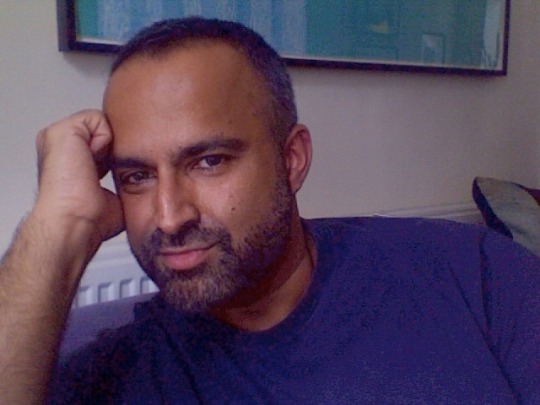
Five questions with Ian Iqbal Rashid – a critically acclaimed poet, script-writer, and filmmaker of such films “Touch of Pink” and “How She Move”
2 notes
·
View notes
Text
Moin Khan
Mohammad Moin Khan (Urdu: محمد معین خان; born September 23, 1971), popularly known as Moin Khan (Urdu: معین خان), is a former Pakistani cricketer, primarily a wicketkeeper-batsman, who remained a member of the Pakistani national cricket team from 1990 to 2004. He has also captained the Pakistani side. He made his international debut against the West Indies at Multan. He took over 100 catches in Test cricket. He has scored over 3,000 ODI runs and taken over 200 catches in ODI cricket. He is credited with coining the name of Saqlain Mushtaq's mystery delivery that goes from leg to off, as the doosra. It means the "other one" in Urdu. In July 2013, he replaced Iqbal Qasim as the chief selector of the Pakistan cricket team
Career
Throughout his international career, Moin had to compete with another wicket-keeper, Rashid Latif. Moin kept wicket in the 1992 Cricket World Cup which Pakistan won and the 1999 Cricket World Cup where Pakistan finished runners up. Latif kept wickets in the 1996 Cricket World Cup and the 2003 Cricket World Cup. Despite close rivalries, Moin is mostly remembered as the better player as their performance after the glove-work came onto how they batted. Despite having a significantly similar Test batting average, Moin had a higher ODI average than Latif and scored more runs than Latif in international cricket.
During the 1992 Cricket World Cup Semi-final against New Zealand, Pakistan needed 9 runs for 8 balls before Moin Khan hit a six to make it 3 runs off 7 balls. Then, Javed Miandad scored the winning boundary and Pakistan setup a clash in the world cup final with England. In the world cup final, Pakistan were 249 from 50 overs with Moin Khan not getting a chance to bat. He did take three catches during the final including one of Ian Botham who went for a duck against an inswinger bowled by Wasim Akram.[2]
In 2005, Moin scored the first century in Pakistan domestic Twenty20 cricket when he smashed 112 off 59 balls for Karachi Dolphins against Lahore Lions in the ABN-AMRO Twenty-20 Cup. At the end of the season, he retired from cricket finishing with 200 not out against Hyderabad, his highest first class score.
In 2007, Moin signed with the unofficial Indian Cricket League and coached the Hyderabad Heroes. In the 2008 edition of the competition, he coached the expansion team, the Lahore Badshahs.
0 notes
Text
Kyle MacLachlan Talks New Gay Dad Role, Reaching LGBTQ Youth
In Giant Little Ones, actor Kyle MacLachlan plays a gay divorced dad named Ray Winter parenting a distant teenage son, Franky (Josh Wiggins), who’s grappling with his own sexual identity. I repeat: Kyle MacLachlan, a gay dad. The 60-year-old actor’s range knows absolutely no bounds, inhabiting diversified worlds and traversing genre, from comedy to drama, from soapy to supernatural.
MacLachlan’s first major role was in David Lynch’s 1984 adaptation of Dune (soon, Call Me By Your Name actor Timothée Chalamet will be slipping into MacLachlan’s stillsuit for the forthcoming remake) and two years later, in 1986, he collaborated with the screen auteur again on Blue Velvet, starring alongside Isabella Rossellini. But it was Lynch’s early-’90s cult TV series Twin Peaks that arguably made MacLachlan a marquee name (in 2017, he reprised his role as Agent Cooper in Twin Peaks: The Return).
In his three decades in TV and film and on stage, MacLachlan has played a city official based on first big-city openly gay Mayor Sam Adams, Fred Flintstone’s boss, the guy who fucks Nomi Malone in a swimming pool, Riley’s dad in Inside Out, Charlotte’s husband on Sex and the City, Bree Van de Kamp’s husband on Desperate Housewives, and because why the hell not: Cary Grant’s ghost. Starring in writer-director Keith Behrman’s Giant Little Ones as Helpful Gay Dad was really just an inevitably, but for MacLachlan, Ray is a warm hug of a role he deeply feels is important. One that, as a parent himself, even hits close to home.
Here, the actor talks about raising his son, Callum, much like Ray Winter does, gay fans who slip into his DMs and bears who love his rosé.
youtube
You’ve played dads before. But what about Ray spoke to you differently?
He had a journey in this as well, which I liked. It was really about the connection with his son, and at that age it’s very difficult and made even more challenging by the fact that the parents are separated. Under the circumstances, Franky just doesn’t know what to think or what to say, and I like that (Ray) really hung in there. I think in the original draft he was maybe a little more demanding, and so we kind of softened that a little bit. There are still those issues, but it was really important to me to feel like Ray was there and he wasn’t gonna go anywhere and to remain as non-judgmental as possible.
His presence is always felt, but he’s able to give his kid space at the same time. I appreciated that he tells his son to focus on who you’re drawn to and not what to call it, essentially letting him know that sexuality is a spectrum. How did that resonate with you?
That was a really nice piece of writing on Keith’s part, I thought. Again, trying not to judge. Especially at that age, I remember for myself just kind of trying to find where you fit in, what you’re good at, what you’re not good at, who’s your group. There’s lots and lots of questions and insecurities that are masked by a false sense of identity or control or “I don’t want to hear what you say, I’ve got it figured out myself.” The idea of just being present, it’s the way I approach the relationship with my son, the not judging. I’m not going at it trying to make him into something he doesn’t want to be.
You were the stepfather of a gay son, Andrew Van de Kamp, on Desperate Housewive. Who does the better job parenting a queer kid: Orson Hodge or Ray Winter?
(Laughs) Orson, bless his heart. You know, he had good intentions, and there was an understanding there at attempting to connect. I don’t think Orson was ever comfortable in that role. I think Ray is more conscious and he’s a champion, in some ways, for anyone who’s being judged. In this particular case, it’s “hang on a second.” He’s sort of about turning the page: “Let’s look at this and what’s really happening here.” I liked that. And he does it with an inner strength and a firmness, but it’s not without a wry sense of humor, and that I liked about him too.
youtube
When were your eyes first opened to having an LGBTQ following?
I think it was probably with Blue Velvet, I guess. Thematically it expected so much of the audience and it told a story that was so unusual and so true. That sort of started it, but I think with the advent of social media, suddenly it’s really obvious and present. And it’s great.
How has it become obvious through social media?
Just through comments, and its fun to read and great to feel the support. And then because so much of it is built around David Lynch, there’s a real shorthand just in terms of terminology and phrases, and because of David’s visuals and his images and his dialogue, of course.
I have a friend who says Blue Velvet was responsible for his sexual awakening. Is that what gay fans tell you on Twitter?
(Laughs) Maybe not quite so personal! But you know, that’s film. Film is all about experiencing something and having your eyes opened, and I think that film in particular was about that; the exploration of it and the themes of it were so interesting, and they hadn’t really been dealt with that much.
What kind of attention did Showgirls get you from the LGBTQ community?
(Laughs) I don’t think it found its camp niche until a little bit later. It had to go through the “Oh my god, this is perhaps one of the worst films ever made” reaction and then people sort of said, “I think it was, in a way, a guilty pleasure.” Then that began to grow, and there’s a true hardcore following of it and that’s really fun. I’ve never said, “Oh yeah, in fact, actually, that was the intention,” or, “Oh yeah, it’s a great film” – it’s not a great film. But it succeeds at a level that I think is still entertaining and fun. And why not? That’s our business.
youtube
I was at a gay bar once and they were showing Showgirls on all the TVs. When you shot that film, did you expect for it to live on in the LGBTQ community like it has?
I think we all entered into the film – certainly, I did – looking at the creative side of it. So you had really talented people – (director) Paul Verhoeven, obviously – and I think his intention was to do something that was sort of hard and cutting-edge and exposé and I think it kind of got away from him a little bit and became something else that was unexpected. But at the same time, we’ve all embraced it and said, “This is where it went,” and I gotta say, the film was probably gonna have a much longer life because of how it ended up than if it hadn’t. If it was a film that we intended to make, it would’ve been great and fine and OK, but now, it will live on forever.
Particularly at gay bars.
At least there! And midnight showings!
For 2004’s rom-com Touch of Pink, what was special about portraying the ghost of Cary Grant who gives advice to a gay Muslim man?
It was really fun. First of all, just the research alone was great. Getting to watch all the films, reading up about him, who he was as a person and the business side of things in Hollywood and how he really, really created this persona, which I think he tried to get away from but it was what he was known for. So I loved the research of it.
And the director, Ian (Iqbal Rashid), whose story this actually was, was so lovely and I see him occasionally when I’m in London. He’s just a terrific person and a very, very talented director, and I was flattered. He had actually seen me on the stage doing a new play with Woody Harrelson and I don’t quite know how he got there from that performance (laughs), but he thought I’d be perfect. So that’s a pretty big mantle to try to take on, and so we sort of softened that a little bit and said he’s more the spirit of Cary Grant – he’s not exactly Cary Grant. But I enjoyed stepping in those shoes and trying out that language and that kind of attitude and that whole thing. And it’s got a beautiful message, and just the ending when he has to let go, it’s very touching, I think.
In 2018, you were honored with a Dorian acting award by GALECA, the Society of LGBTQ Entertainment Critics, for Twin Peaks: The Return, and in 2009, Desperate Housewives received Outstanding Comedy Series from GLAAD. Is there something special or distinct about having your work acknowledged by LGBTQ audiences and organizations?
Yeah, those stories, if they can speak to a community and there’s a resonance there, that’s the goal of this. They should be universal, but I think that if there’s a relationship that can be created then we’re doing a good job; something that’s worthwhile that creates an emotional response and a connection, that’s really what you want. I mean, that’s what I want.
You played the mayor of Portland in Portlandia. Do you think that character would make a good mayor of Twin Peaks or Wisteria Lane?
(Laughs) He wasn’t a really good mayor – but he was incredibly enthusiastic! I think that was the fun of it: He always got things a little bit wrong but they kind of ultimately ended up OK, with the help of Fred (Armisen) and Carrie (Brownstein), certainly. But, oh god, at least it would be a lot of fun to have him as a mayor of any community, I think.
Why haven’t we seen you in more openly gay roles?
(Laughs) It’s a good question. You know, the work just kind of comes, and it’s one of those things where once it sort of filters through a little bit of whatever it does in Hollywood it finds its way into my inbox and you take a look at it.
Have there been gay roles you’ve turned down?
It’s always about the quality of the material, so if it there was, it just wasn’t worth telling.
But then you read something like Giant Little Ones.
And you know that it is a beautiful story. I had the reaction that everyone had: This is a story that needed to be told, and for any kids out there who are having this kind of “I don’t know, I don’t know” and they don’t have anywhere to turn, it’s like, well, we’re not the answer, but we’re at least an experience to say, “You’re not alone.”
And a reminder to your own son that his dad is OK with whomever he becomes or wants to be.
In fact, he attends a school in New York and it’s all about that. It’s all about the acceptance of everyone, and it’s a wonderful thing to watch because that wasn’t my experience growing up. Public schools, small town, very conservative. Not unlike the situation of Franky, there was a lot of “however tough you are” and “whatever sports you play,” those are your identifiers. It’s nice that he’s having a completely different experience.
In your spare time, you are a winemaker. Are gay men some of your most loyal rosé buyers?
(Laughs) I should hope so, for god’s sake! Rosé is one of those crazy things: It just keeps expanding and people love it and now it’s not just for summer anymore, it’s not just for the Hamptons anymore. It can be year-round and, yeah, it’s been really fun. And yeah, very supportive.
In a queer context “bear” means a hairy, chubby gay man, so it can’t hurt that “Pursued by Bear” is the name of your brand.
You know, I was really going after the Shakespeare play, obviously, but yeah, not unaware and I thought, that’s kind of funny. There’ve been occasions where I’ve met a few guys – bears, you know – and they’ve said, “Oh yeah, I’ve got this in my cellar.” And it cracks me up! I’m like, “Fantastic, I’m glad you like it.” Its good wine and it should be enjoyed.
source https://hotspotsmagazine.com/2019/03/27/kyle-maclachlan-talks-new-gay-dad-role-reaching-lgbtq-youth/ from Hot Spots Magazine https://hotspotsmagazin.blogspot.com/2019/03/kyle-maclachlan-talks-new-gay-dad-role_27.html
1 note
·
View note
Text
Kyle MacLachlan Talks New Gay Dad Role, Reaching LGBTQ Youth
In Giant Little Ones, actor Kyle MacLachlan plays a gay divorced dad named Ray Winter parenting a distant teenage son, Franky (Josh Wiggins), who’s grappling with his own sexual identity. I repeat: Kyle MacLachlan, a gay dad. The 60-year-old actor’s range knows absolutely no bounds, inhabiting diversified worlds and traversing genre, from comedy to drama, from soapy to supernatural.
MacLachlan’s first major role was in David Lynch’s 1984 adaptation of Dune (soon, Call Me By Your Name actor Timothée Chalamet will be slipping into MacLachlan’s stillsuit for the forthcoming remake) and two years later, in 1986, he collaborated with the screen auteur again on Blue Velvet, starring alongside Isabella Rossellini. But it was Lynch’s early-’90s cult TV series Twin Peaks that arguably made MacLachlan a marquee name (in 2017, he reprised his role as Agent Cooper in Twin Peaks: The Return).
In his three decades in TV and film and on stage, MacLachlan has played a city official based on first big-city openly gay Mayor Sam Adams, Fred Flintstone’s boss, the guy who fucks Nomi Malone in a swimming pool, Riley’s dad in Inside Out, Charlotte’s husband on Sex and the City, Bree Van de Kamp’s husband on Desperate Housewives, and because why the hell not: Cary Grant’s ghost. Starring in writer-director Keith Behrman’s Giant Little Ones as Helpful Gay Dad was really just an inevitably, but for MacLachlan, Ray is a warm hug of a role he deeply feels is important. One that, as a parent himself, even hits close to home.
Here, the actor talks about raising his son, Callum, much like Ray Winter does, gay fans who slip into his DMs and bears who love his rosé.
youtube
You’ve played dads before. But what about Ray spoke to you differently?
He had a journey in this as well, which I liked. It was really about the connection with his son, and at that age it’s very difficult and made even more challenging by the fact that the parents are separated. Under the circumstances, Franky just doesn’t know what to think or what to say, and I like that (Ray) really hung in there. I think in the original draft he was maybe a little more demanding, and so we kind of softened that a little bit. There are still those issues, but it was really important to me to feel like Ray was there and he wasn’t gonna go anywhere and to remain as non-judgmental as possible.
His presence is always felt, but he’s able to give his kid space at the same time. I appreciated that he tells his son to focus on who you’re drawn to and not what to call it, essentially letting him know that sexuality is a spectrum. How did that resonate with you?
That was a really nice piece of writing on Keith’s part, I thought. Again, trying not to judge. Especially at that age, I remember for myself just kind of trying to find where you fit in, what you’re good at, what you’re not good at, who’s your group. There’s lots and lots of questions and insecurities that are masked by a false sense of identity or control or “I don’t want to hear what you say, I’ve got it figured out myself.” The idea of just being present, it’s the way I approach the relationship with my son, the not judging. I’m not going at it trying to make him into something he doesn’t want to be.
You were the stepfather of a gay son, Andrew Van de Kamp, on Desperate Housewive. Who does the better job parenting a queer kid: Orson Hodge or Ray Winter?
(Laughs) Orson, bless his heart. You know, he had good intentions, and there was an understanding there at attempting to connect. I don’t think Orson was ever comfortable in that role. I think Ray is more conscious and he’s a champion, in some ways, for anyone who’s being judged. In this particular case, it’s “hang on a second.” He’s sort of about turning the page: “Let’s look at this and what’s really happening here.” I liked that. And he does it with an inner strength and a firmness, but it’s not without a wry sense of humor, and that I liked about him too.
youtube
When were your eyes first opened to having an LGBTQ following?
I think it was probably with Blue Velvet, I guess. Thematically it expected so much of the audience and it told a story that was so unusual and so true. That sort of started it, but I think with the advent of social media, suddenly it’s really obvious and present. And it’s great.
How has it become obvious through social media?
Just through comments, and its fun to read and great to feel the support. And then because so much of it is built around David Lynch, there’s a real shorthand just in terms of terminology and phrases, and because of David’s visuals and his images and his dialogue, of course.
I have a friend who says Blue Velvet was responsible for his sexual awakening. Is that what gay fans tell you on Twitter?
(Laughs) Maybe not quite so personal! But you know, that’s film. Film is all about experiencing something and having your eyes opened, and I think that film in particular was about that; the exploration of it and the themes of it were so interesting, and they hadn’t really been dealt with that much.
What kind of attention did Showgirls get you from the LGBTQ community?
(Laughs) I don’t think it found its camp niche until a little bit later. It had to go through the “Oh my god, this is perhaps one of the worst films ever made” reaction and then people sort of said, “I think it was, in a way, a guilty pleasure.” Then that began to grow, and there’s a true hardcore following of it and that’s really fun. I’ve never said, “Oh yeah, in fact, actually, that was the intention,” or, “Oh yeah, it’s a great film” – it’s not a great film. But it succeeds at a level that I think is still entertaining and fun. And why not? That’s our business.
youtube
I was at a gay bar once and they were showing Showgirls on all the TVs. When you shot that film, did you expect for it to live on in the LGBTQ community like it has?
I think we all entered into the film – certainly, I did – looking at the creative side of it. So you had really talented people – (director) Paul Verhoeven, obviously – and I think his intention was to do something that was sort of hard and cutting-edge and exposé and I think it kind of got away from him a little bit and became something else that was unexpected. But at the same time, we’ve all embraced it and said, “This is where it went,” and I gotta say, the film was probably gonna have a much longer life because of how it ended up than if it hadn’t. If it was a film that we intended to make, it would’ve been great and fine and OK, but now, it will live on forever.
Particularly at gay bars.
At least there! And midnight showings!
For 2004’s rom-com Touch of Pink, what was special about portraying the ghost of Cary Grant who gives advice to a gay Muslim man?
It was really fun. First of all, just the research alone was great. Getting to watch all the films, reading up about him, who he was as a person and the business side of things in Hollywood and how he really, really created this persona, which I think he tried to get away from but it was what he was known for. So I loved the research of it.
And the director, Ian (Iqbal Rashid), whose story this actually was, was so lovely and I see him occasionally when I’m in London. He’s just a terrific person and a very, very talented director, and I was flattered. He had actually seen me on the stage doing a new play with Woody Harrelson and I don’t quite know how he got there from that performance (laughs), but he thought I’d be perfect. So that’s a pretty big mantle to try to take on, and so we sort of softened that a little bit and said he’s more the spirit of Cary Grant – he’s not exactly Cary Grant. But I enjoyed stepping in those shoes and trying out that language and that kind of attitude and that whole thing. And it’s got a beautiful message, and just the ending when he has to let go, it’s very touching, I think.
In 2018, you were honored with a Dorian acting award by GALECA, the Society of LGBTQ Entertainment Critics, for Twin Peaks: The Return, and in 2009, Desperate Housewives received Outstanding Comedy Series from GLAAD. Is there something special or distinct about having your work acknowledged by LGBTQ audiences and organizations?
Yeah, those stories, if they can speak to a community and there’s a resonance there, that’s the goal of this. They should be universal, but I think that if there’s a relationship that can be created then we’re doing a good job; something that’s worthwhile that creates an emotional response and a connection, that’s really what you want. I mean, that’s what I want.
You played the mayor of Portland in Portlandia. Do you think that character would make a good mayor of Twin Peaks or Wisteria Lane?
(Laughs) He wasn’t a really good mayor – but he was incredibly enthusiastic! I think that was the fun of it: He always got things a little bit wrong but they kind of ultimately ended up OK, with the help of Fred (Armisen) and Carrie (Brownstein), certainly. But, oh god, at least it would be a lot of fun to have him as a mayor of any community, I think.
Why haven’t we seen you in more openly gay roles?
(Laughs) It’s a good question. You know, the work just kind of comes, and it’s one of those things where once it sort of filters through a little bit of whatever it does in Hollywood it finds its way into my inbox and you take a look at it.
Have there been gay roles you’ve turned down?
It’s always about the quality of the material, so if it there was, it just wasn’t worth telling.
But then you read something like Giant Little Ones.
And you know that it is a beautiful story. I had the reaction that everyone had: This is a story that needed to be told, and for any kids out there who are having this kind of “I don’t know, I don’t know” and they don’t have anywhere to turn, it’s like, well, we’re not the answer, but we’re at least an experience to say, “You’re not alone.”
And a reminder to your own son that his dad is OK with whomever he becomes or wants to be.
In fact, he attends a school in New York and it’s all about that. It’s all about the acceptance of everyone, and it’s a wonderful thing to watch because that wasn’t my experience growing up. Public schools, small town, very conservative. Not unlike the situation of Franky, there was a lot of “however tough you are” and “whatever sports you play,” those are your identifiers. It’s nice that he’s having a completely different experience.
In your spare time, you are a winemaker. Are gay men some of your most loyal rosé buyers?
(Laughs) I should hope so, for god’s sake! Rosé is one of those crazy things: It just keeps expanding and people love it and now it’s not just for summer anymore, it’s not just for the Hamptons anymore. It can be year-round and, yeah, it’s been really fun. And yeah, very supportive.
In a queer context “bear” means a hairy, chubby gay man, so it can’t hurt that “Pursued by Bear” is the name of your brand.
You know, I was really going after the Shakespeare play, obviously, but yeah, not unaware and I thought, that’s kind of funny. There’ve been occasions where I’ve met a few guys – bears, you know – and they’ve said, “Oh yeah, I’ve got this in my cellar.” And it cracks me up! I’m like, “Fantastic, I’m glad you like it.” Its good wine and it should be enjoyed.
from Hotspots! Magazine https://hotspotsmagazine.com/2019/03/27/kyle-maclachlan-talks-new-gay-dad-role-reaching-lgbtq-youth/
0 notes
Photo





name a better movie than touch of pink (2004) dir. ian iqbal rashid
591 notes
·
View notes